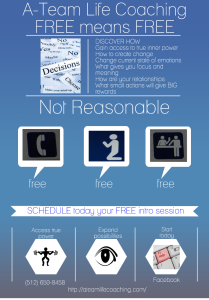Why Not Show A Little Kindness?

John 13:34-35 (NIV) “A new command I give you: Love one another. As I have loved you, so you must love one another. By this everyone will know that you are my disciples, if you love one another.”
Pastors often deal with people who are having a hard time getting along. Couples who are fighting and angry with each other come to us to work out their “issues.” It can be messy and uncomfortable. It is hard work to get people moving toward reconciliation. It is not work for the squeamish or weak of heart. I was saddened to find this same kind of tension and strife present during the UM General Conference currently being held in Portland, OR. Like so many “Metho-nerds” (a term coined by the UM Reporter) I have spent countless hours tuned in to podcasts, reading reports of Conference activities, praying for General Conference. I have heard people say that the UM Church is facing the real possibility of divorce. It seems like the parties just can’t get along. People are often angry and defensive and are either engaging in negative communication or not talking at all. Along with prayer, I wondered if there was anything else we could try to get us back on track?
In my own ministry practice I use something called Imago Relationship Therapy (IRT). I have found great success in using IRT exercises to get people re-engaged in their relationship. This is especially helpful in cases when there seems to be no way to move forward without splitting up.
Imago Relationship Therapy is an effective, loving and compassionate approach to bridging the distance between you and your partner! The principles and practices of Imago Therapy, first described by Harville Hendrix, PhD, in his best-seller “Getting the Love You Want,” have touched the lives of over 100,000 people in approximately 30 countries. detailed an exercise that helps couples both express and hear words of appreciation.
I have outlined below an exercise that can help people (usually married couples) both express and hear words of appreciation. It allows for the creation of a safe place for deep sharing and listening. There is not doubt about it, both deep sharing and listening is transformative and restorative to even the most fractured relationship. I began to wonder, what would happen if we adopted something like this exercise and practice at General Conference?
Could we find one thing we honestly value and appreciate in another even though we disagree?
I wonder what would happen if we could sit face to face, looking into one another’s eyes and listen deeply without judgement?
Could we find peace?
Reconciliation?
Unity?
Love?
We UM’s are very much like a married couple who even though they are really unhappy they are simply unwilling to just throw away the marriage. Like them we want to make it work. So many United Methodist are unwilling to just give up and walk away. So why not keep praying for reconciliation and renewed love while we also give IRT a try?
Be blessed!
Pastor Cheryl
Exercise in Sharing Appreciation
Instructions:
Choose who will be the sender and who will be the receiver
Look into each other’s eyes.
Take 3 deep breaths.
Take turns sharing your responses.
Sharing an Appreciation – Sender
I would like to share an appreciation. Is now a good time?
Listen for response.
One thing I appreciate about you is…
Response.
When you do that I feel…
Response.
And when I feel that, it reminds me that when I was little…
Response.
Mirroring an Appreciation – Receiver
I am available now.
Listen for appreciation.
Let me see if I got that. You said…Did I get it?
Response.
Is there more about that?
Response.
Let me see if I got ALL of that. You said…Did I get it all?
End with one-minute hug
Here is a link to view the Mirroring an Appreciation
More about Imago Relationship Therapy found here http://imagorelationships.org/pub/















